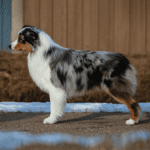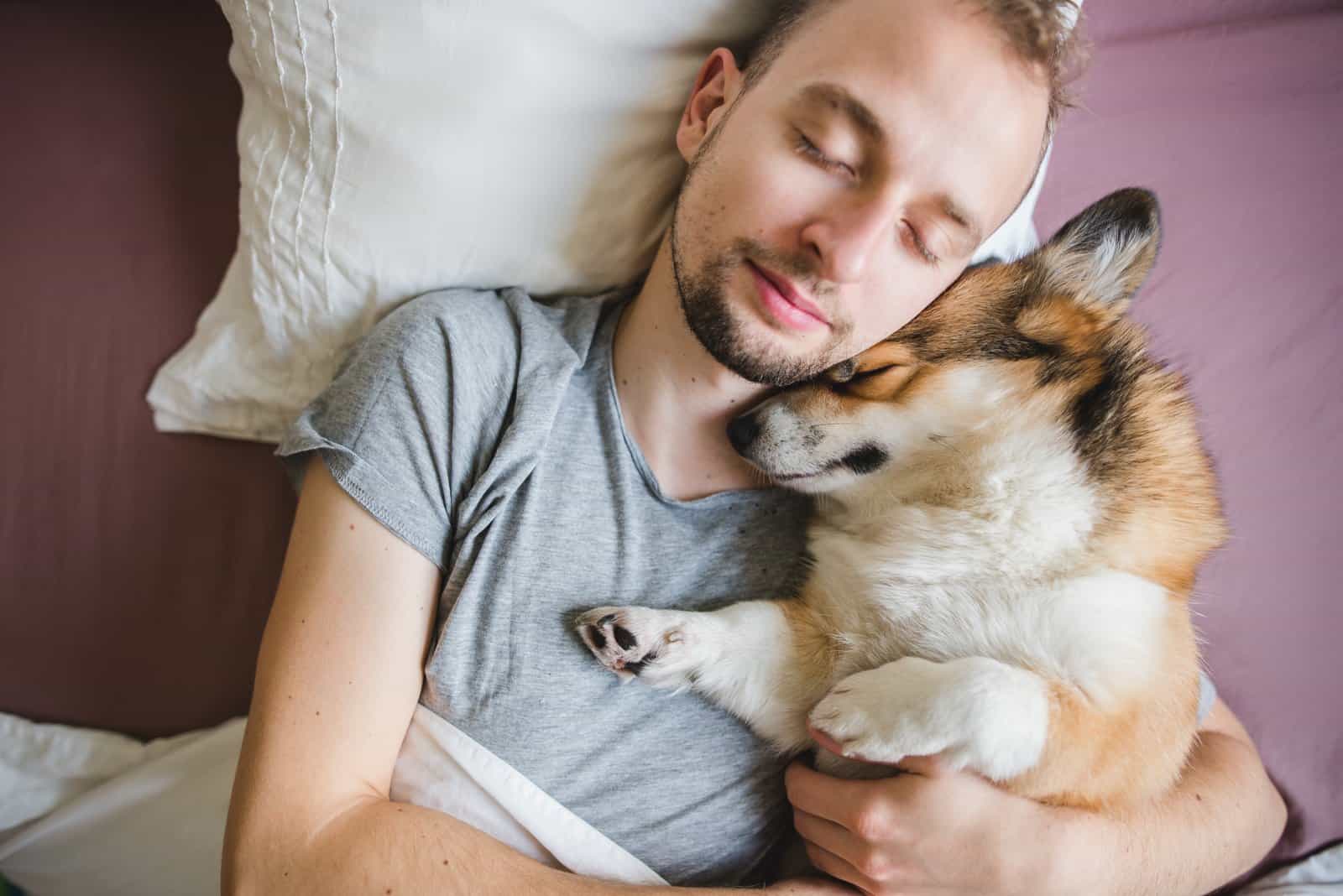

Dogs are among the cutest family pets you can have. They can liven up any home and make even the most mundane activities fun, even sleeping. But sometimes, dogs do things that leave us laughing, surprised, or even worried.
As a dog owner, you might have noticed some funny sleeping habits in your furry friend, like sleeping on your head. If you wake up with your dog’s butt blocking your view, you might wonder, “Why does my dog sleep on my head?”
The quick answer is that dogs love to sleep close to us because it makes them feel safe. This position also helps them protect us, especially if they are a breed known for being good guard dogs, like German Shepherds or Corgis. But there are many other reasons why your dog might prefer sleeping on your head.
Feeling Secure
Dogs are pack animals and love to be close to their pack members. As their owner, you are the most important pack member for them. In the wild, pack members stick together for security and comfort. When separated, they are more vulnerable to attacks.
A dog that sleeps on your head feels perfectly secure knowing they are close to you, the pack leader. Many times, we sleep under blankets, and the only part not covered is our head. Your dog can feel your warmth by lying directly on your head.
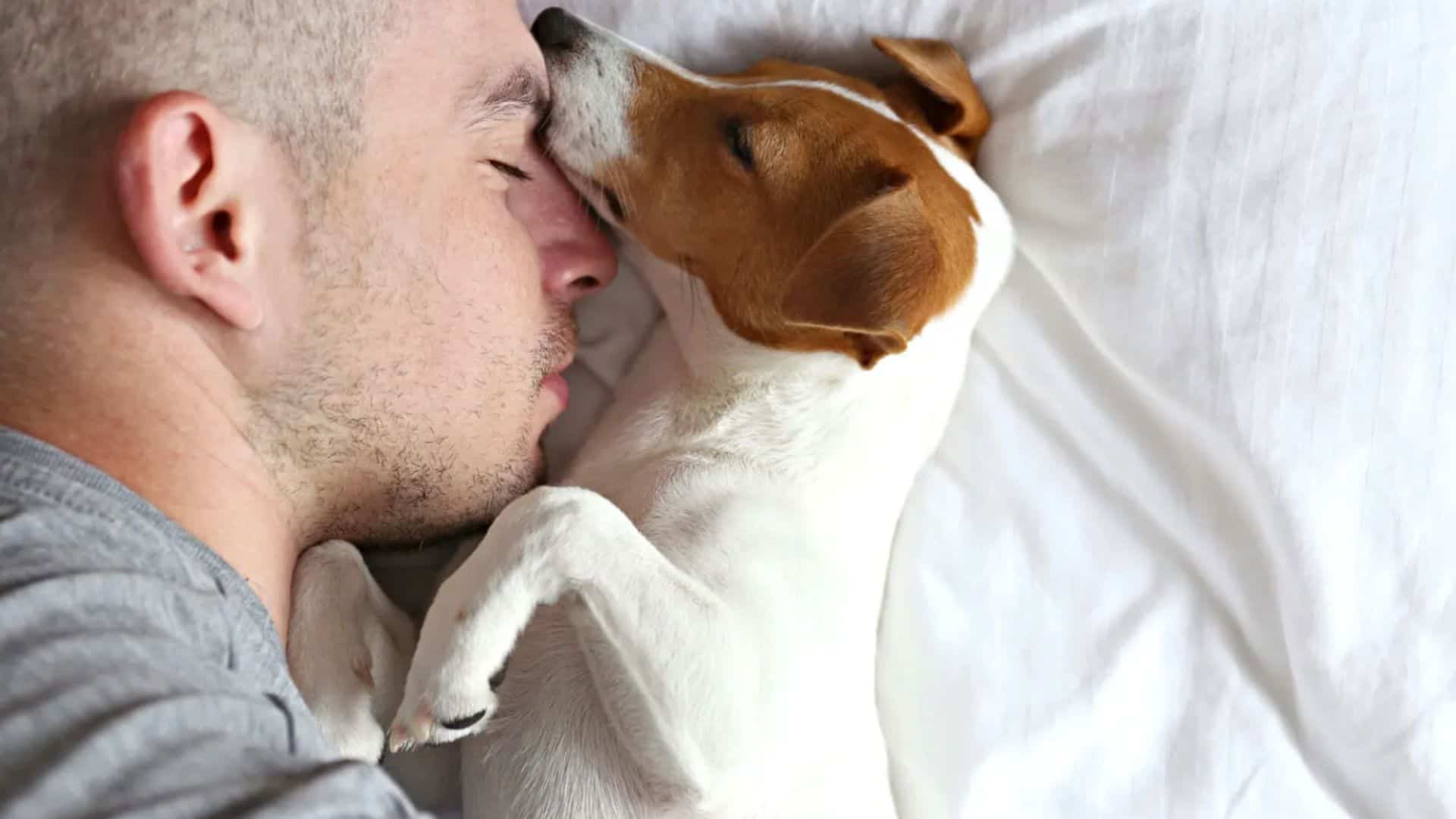

Overprotective Behaviors
This reason is closely related to the previous one. The dog sees you as a pack member, and pack members stay together to stay safe. By lying on your head, your dog is protecting you from danger.
Some dog breeds are more prone to overprotective behavior because they have been trained for generations to be guard dogs. Dogs may become overprotective when other pets or people are around. For example, if you’re sharing a bed with a new partner or have recently introduced a new family member, your dog might want to sleep on your head to keep you safe.
Separation Anxiety
Dogs and humans share many similarities, including being prone to mental disorders like stress and anxiety. One common issue in dogs is separation anxiety. No dog is happy when you go away, but for a dog with separation anxiety, it can feel like the end of the world.
A bored and lonely dog might end up feeling detached, which can lead to separation anxiety. Signs of separation anxiety include self-isolation, irritable behavior, poor eating habits, incontinence, and gastrointestinal issues.
If your dog sleeps on your head only in the morning, it might be because they anticipate you’re about to leave. By sleeping on your head, they’re trying to keep you from leaving.
Bonding
Bonding is a healthy alternative to separation anxiety. A dog doesn’t have to be anxious to want to stay close to you. Sharing a bed is a great way for some dogs to bond with their owners, strengthening the attachment between you and your dog.
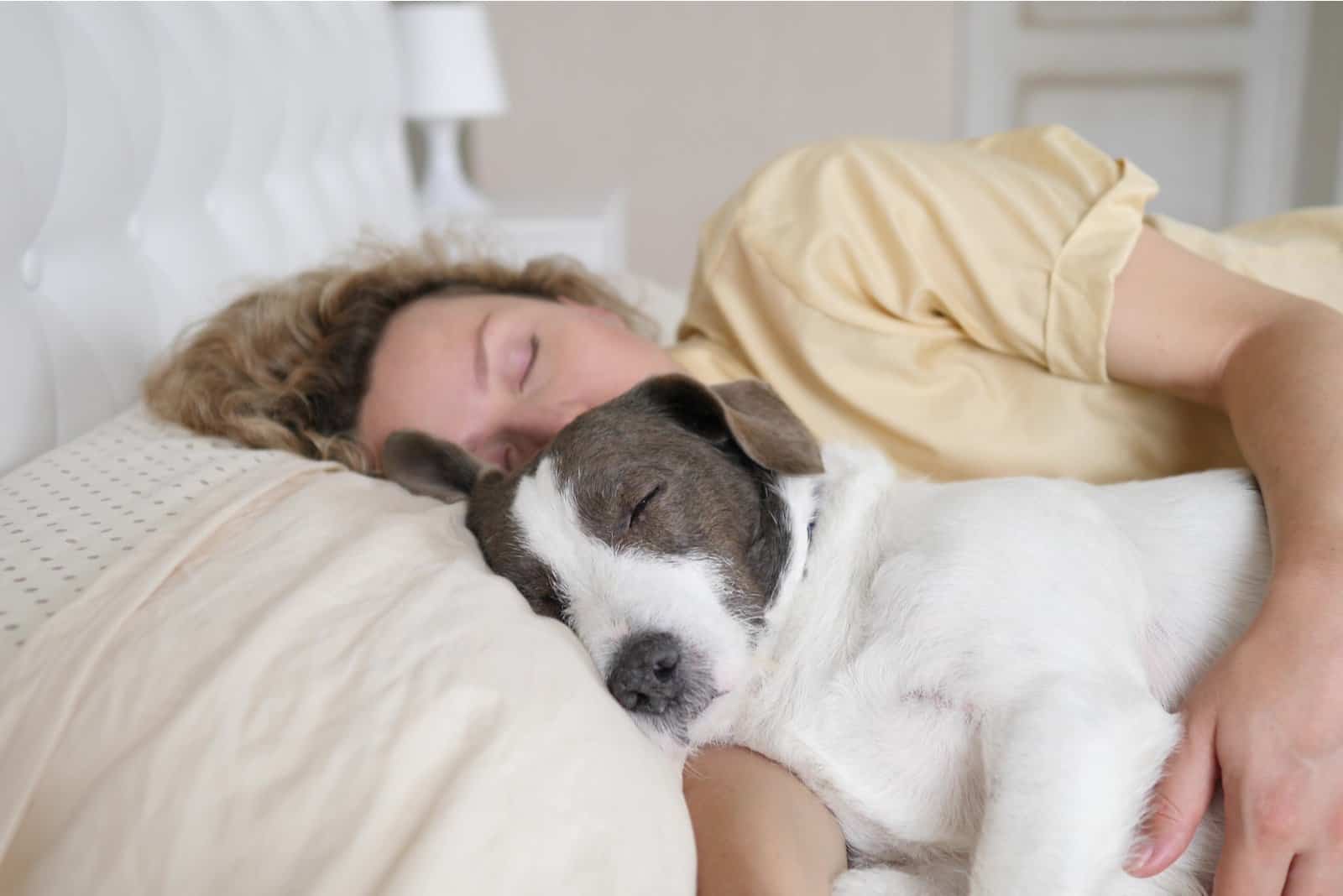

Attention Seeking Behaviors
Dogs love attention and will do anything to get it, especially if they feel they’re not getting enough. Attention-seeking behaviors can be annoying, like barking non-stop or being destructive.
They Like Your Pillow
Sometimes, a dog doesn’t sleep on your head because they like you that much but because they love your pillow. Pillows are comfortable, and dogs love comfortable spots. If you’re not allowing your dog to lie on a pillow, they’ll want to lie on yours.
They Want To Get Warm
Dogs love to sleep in warm, comfortable places, especially during cold winter months. Even though a dog’s body temperature is higher than a human’s, our head is still much hotter than the surrounding environment. This can make dogs want to lie on top of it.
A New Puppy
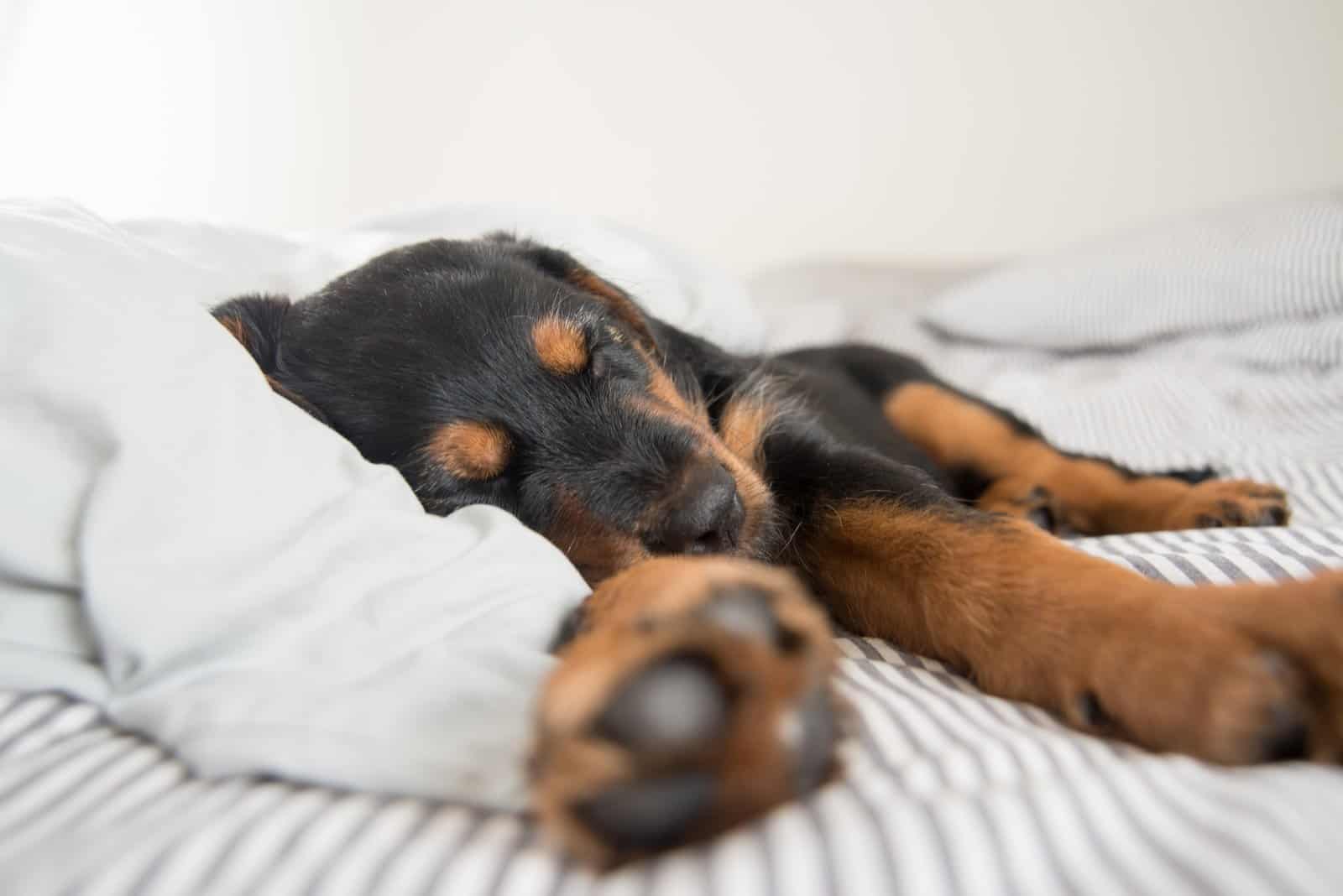

New puppies often want to sleep as close as possible to us, including on our heads. Before adoption, puppies spend most of their time with their mother and littermates. When separated, they might feel lonely and want to cuddle with you all night long.
Marking
Dogs need a firm owner who will make them think that humans are pack leaders. If a dog isn’t properly trained, they might believe they are the leader instead. Sleeping on your head can be a sign of dominance, not protection.
You’ve Reinforced The Behavior
Most of the time, dogs won’t do anything unless they get something out of it. If your dog insists on sleeping on your head, chances are you’ve inadvertently reinforced this behavior. Dogs live for positive reinforcements and will behave in ways to get you to praise them or pay attention to them.
Why Does My Dog Sleep On My Pillow Above My Head?
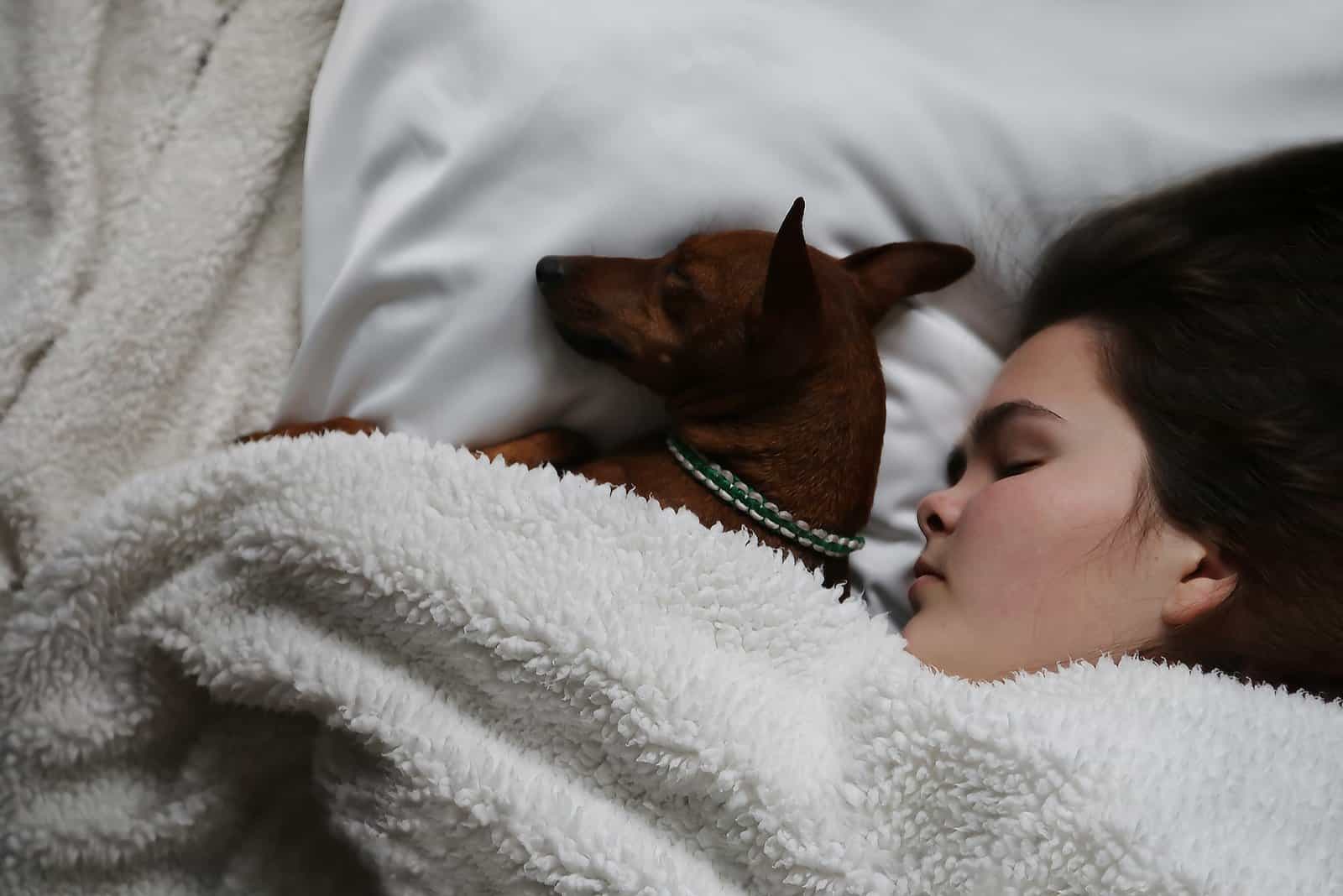

Your dog might love your pillow because it’s comfortable. By choosing the pillow above your head, your dog can ensure they are close to you. If your dog prefers to sleep with their head and neck raised, it might have breathing issues. Mention this to your vet during the next visit.
Why Does My Dog Lay His Head On My Feet?
Your feet are likely one of the body parts kept out of the covers. By laying on them, your dog feels close to you and your body warmth. Your dog might also love laying on something elevated, and your legs are comfortable.
Why Does My Dog Lay His Head On My Neck?
If a dog lays his head on your neck, this is a big sign of affection. Necks are sensitive body parts in all species. By laying his head on your neck while you sleep, your dog is protecting you when you are most vulnerable. Small dog breeds might lay their head on your neck because they can’t reach your head.
Why Does My Dog Lay His Head On My Chest?
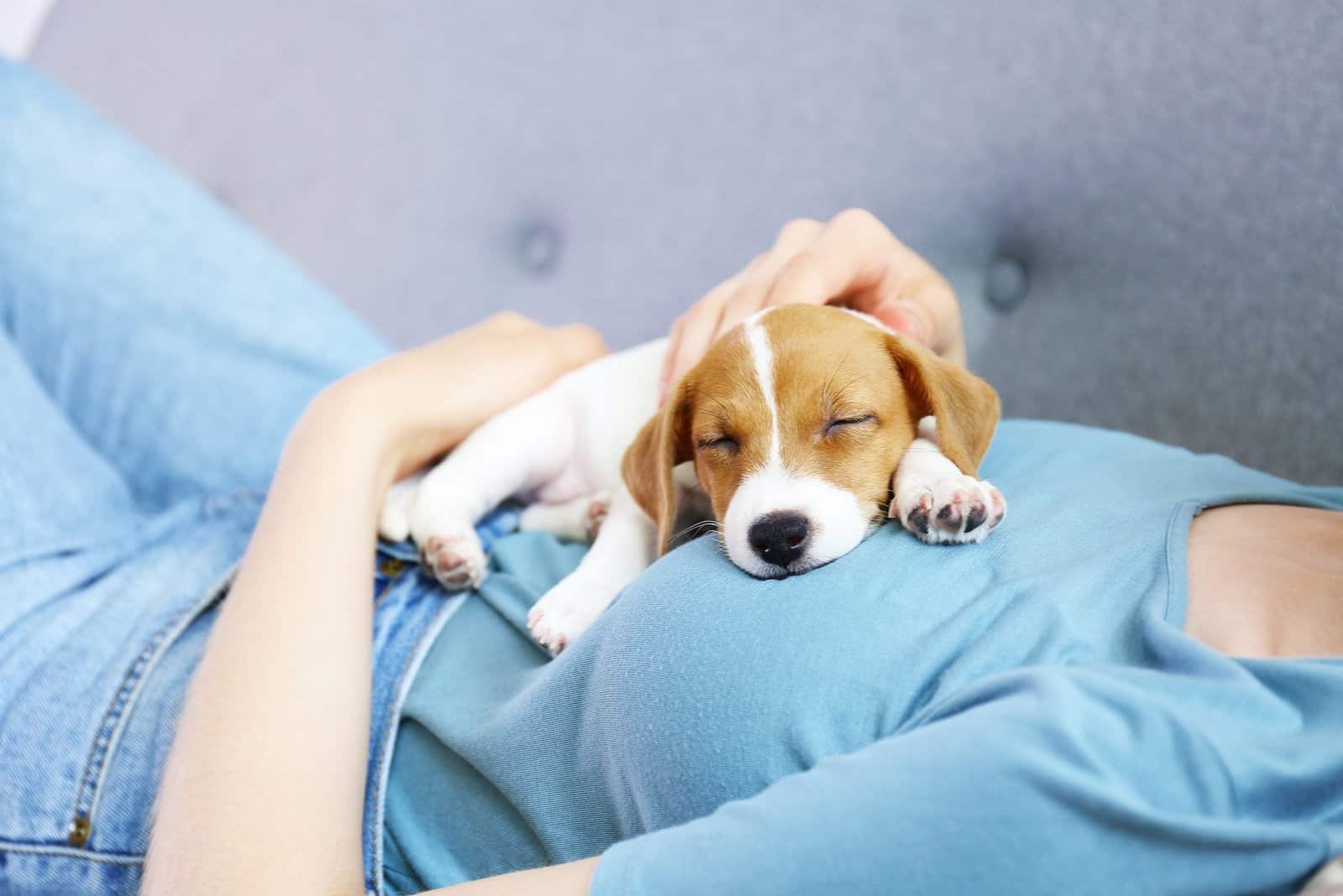

Having a dog lay his head on your chest is usually a sign of affection, not dominance. By protecting your chest with his body, your dog is letting you know you are safe. Your chest is also a comfortable, warm place where your dog can hear your heartbeat, which can calm him down.
Why Does My Dog Sit On My Head When I Sleep?
Most of the time, dogs sit on your head because they don’t want you to leave. This is common for dogs with separation anxiety who have a hard time dealing with their owner leaving for work.
Why Does My Dog Sleep With His Head Hanging Off The Bed?
Sleeping with their head hanging off the bed can help dogs get pressure relief from their spine. This position can also mean your dog is relaxed and unconcerned, as they aren’t able to jump quickly in case of danger.
How Do You Stop Your Dog From Sleeping On Your Head?
While having a dog sleep on top of you sounds fun, it can become annoying and might cause health problems. To stop these behaviors, you first need to understand why your dog is acting this way.
When Did Your Dog Start Sleeping On Your Head?
Think about when your dog started this behavior and what might have caused it. Did something scare your dog, or did someone allow them to join them in bed?
Does He Sleep More Often Sometimes?
Does your dog sleep on your head more often in winter? Chances are he is trying to catch some of your body heat. If he sleeps on your head in the morning, he might be sad that you’re about to leave for work.
Does He Sleep In Particular Positions?
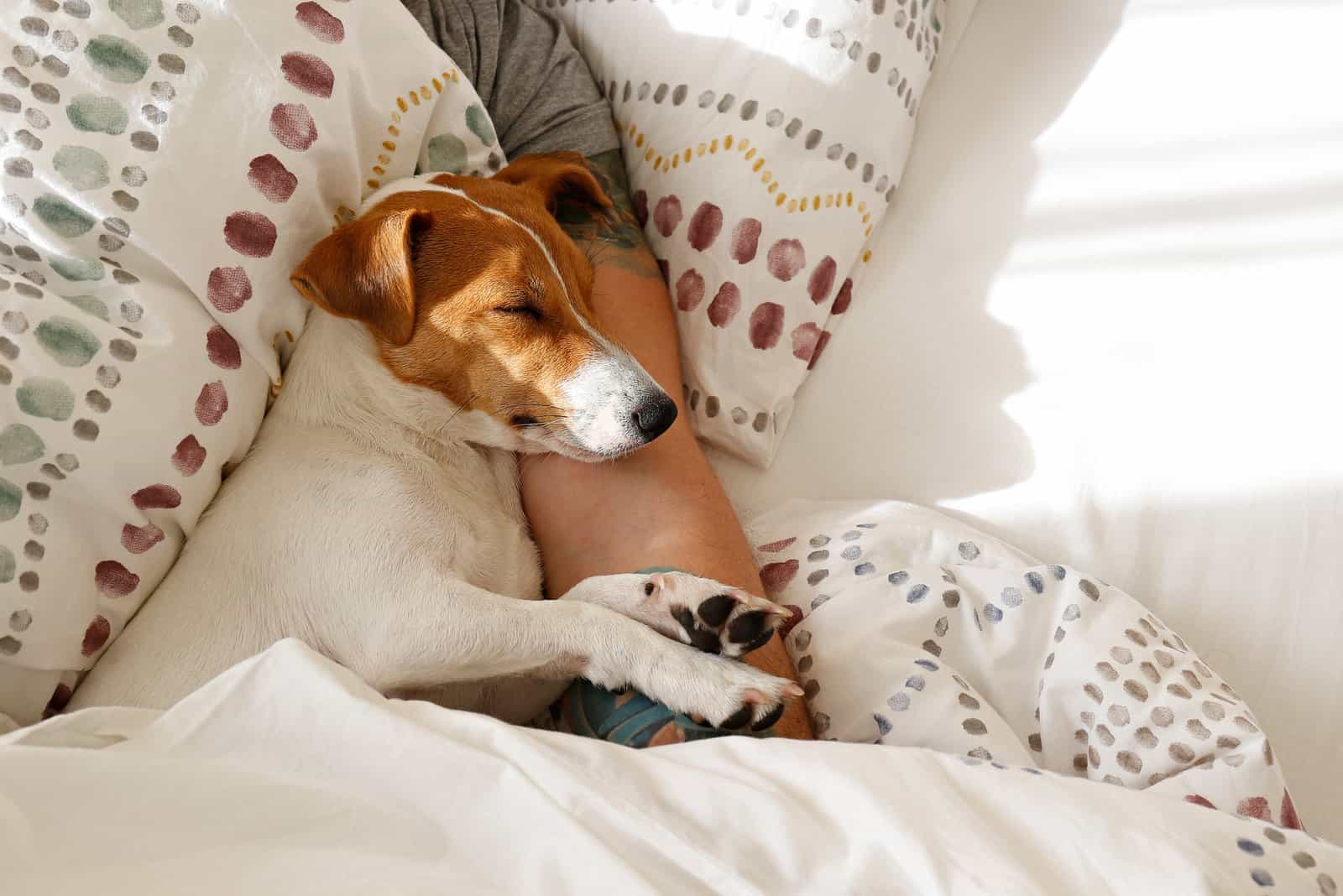

Look at your dog’s sleeping positions as they can tell you a lot about how your dog is feeling. Common positions include curled up, on the back, on the side, and on the belly. Each position can indicate different feelings like insecurity, trust, or relaxation.
Make Sure The Dog Is Stimulated
Your dog needs plenty of exercise to keep stimulated. Mental stimulation is essential for your dog’s well-being, while physical exercise makes your dog tired. Outdoor activities like walking, swimming, or playtime are great for tiring your pup.
Train Your Dog
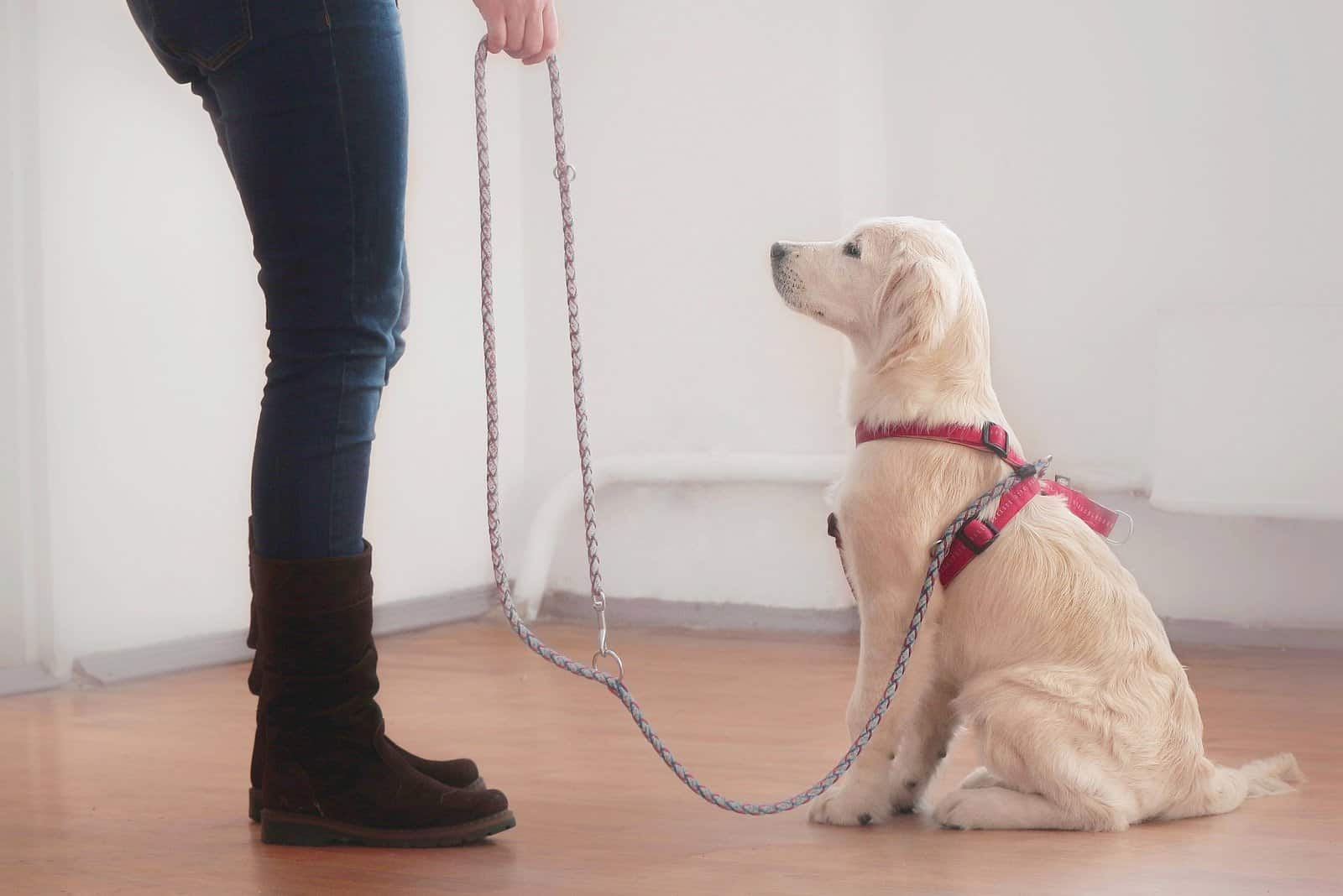

Dog training is essential in every aspect of life with dogs. Start by taking your dog to the place you’d like them to sleep and give a command like “Sleep!” or “Stay!” Reward your dog with a treat if they obey. Keep doing this until they stay where you want them to.
Get Him A Good Dog Bed
Make sure your dog has a pleasant sleeping environment. Buy a comfortable dog bed, preferably orthopedic and made of memory foam. Ensure the bed is in a dark, quiet spot to allow for quality sleep without disturbances.
Give Him Plenty Of Emotional Support
Some dogs sleep on your head because they want to be close to you. Give your dog enough support throughout the day to make them feel comfortable sleeping alone at night. Providing enough attention during the day can reduce clingy behavior at night.
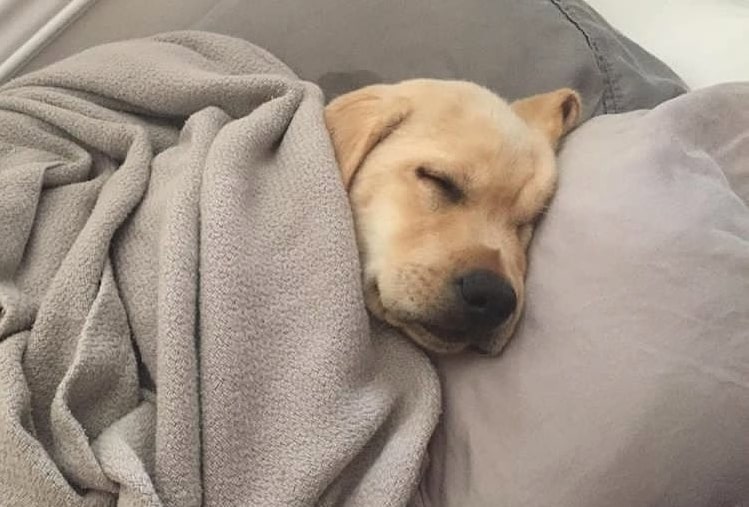

Dog Training Is The Key
Every dog likes having a strong pack leader. Teach your dog that there are limitations, and it’s okay for them to sleep in their own bed. This helps both of you get a good night’s sleep. Make up for it by providing lots of hugs and cuddles during the day to strengthen your bond.




